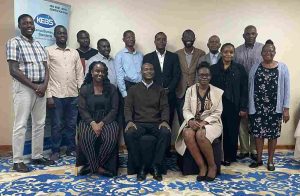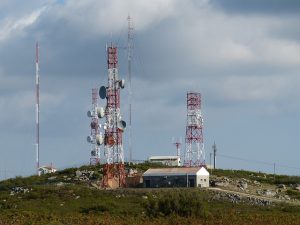Part III
The perception of disability tends to be similar across all regions. Does this call for a universal solution?
Unfortunately, the universalisation of disability makes persons with disabilities be treated as a homogeneous group, regardless of the diversity of their disabilities.
Angela Minayo, a Program Officer at KICTANet, whose works have mostly revolved around digital human rights, gender, cyber safety, and the brains behind the conceptualization of this program, points out that persons with disabilities have had less access to work, low representation in tech policy.
Miss Minayo believes that Digital accessibility is an enabler for development, and personal growth, and a gateway to changing societal views of persons with disabilities. In her gender projects, she is determined to remove the perception of women and individuals with disabilities as a monolith. She vows for the need to cater to each person’s needs independently and in a customized approach.
The Digital Accessibility program is cross-cutting and acts to address issues of the underserved in policy making. It is also divergent in offering new perspectives on Online Gender Based Violence (OGBV) and access to the Internet by women with disabilities.
The program, therefore, has served its purpose in mainstreaming disability in policy and regulation, championing for the inclusion of persons with disabilities in the tech workforce and putting them on the frontline.
Further, Miss Minayo articulates that we need to make digital inclusion sustainable. Disability issues evolve and need continuous addressing. Challenges and barriers faced by persons with disabilities cannot be solved within a defined period.
The Digital Accessibility program in the past year has been a journey of learning and capacitation. This is according to the Project Manager and Data Protection Podcaster at KICTANet, Meshack Masibo. He attributes this program to ensuring content accessibility and serving as a watchdog for ICT access and equality.
This has brought new voices in the digital space and potential data aspects like how data privacy affects persons with disabilities.
As we celebrate these great milestones in KICTANet’s Digital Accessibility, we urge other institutions to emulate this great work, find their inclusivity niche, and bring persons with disabilities on board. Have them in the workforce, give them the necessary accommodations, and let them be part of the design and implementation of your projects and programs.
Happy first anniversary to the Digital Accessibility!
Access the full conversation here: Digital Accessibility at KICTANet
Nicodemus Nyakundi is an ICT Access and Equality Fellow for PWDs at KICTANet. He has a background in IT and advocates for digital inclusivity.
![]()




